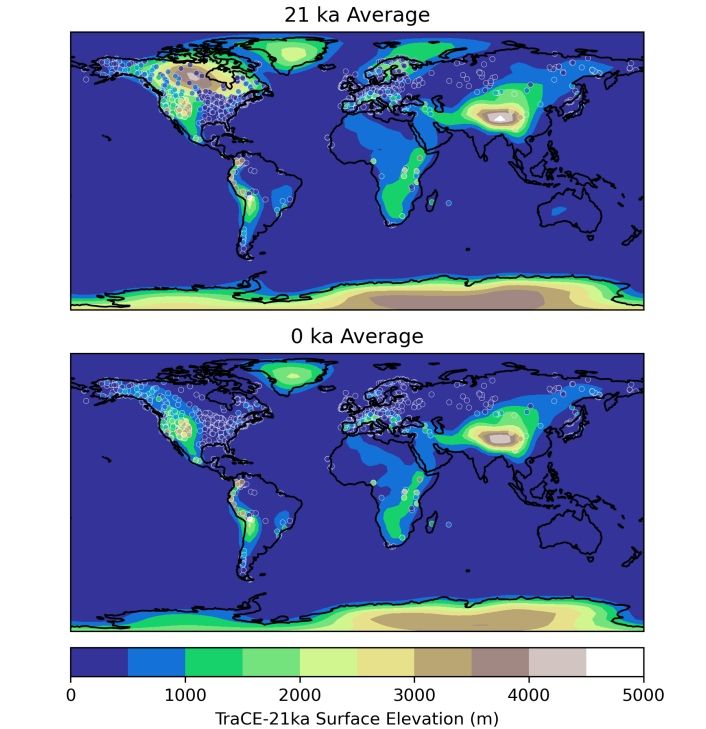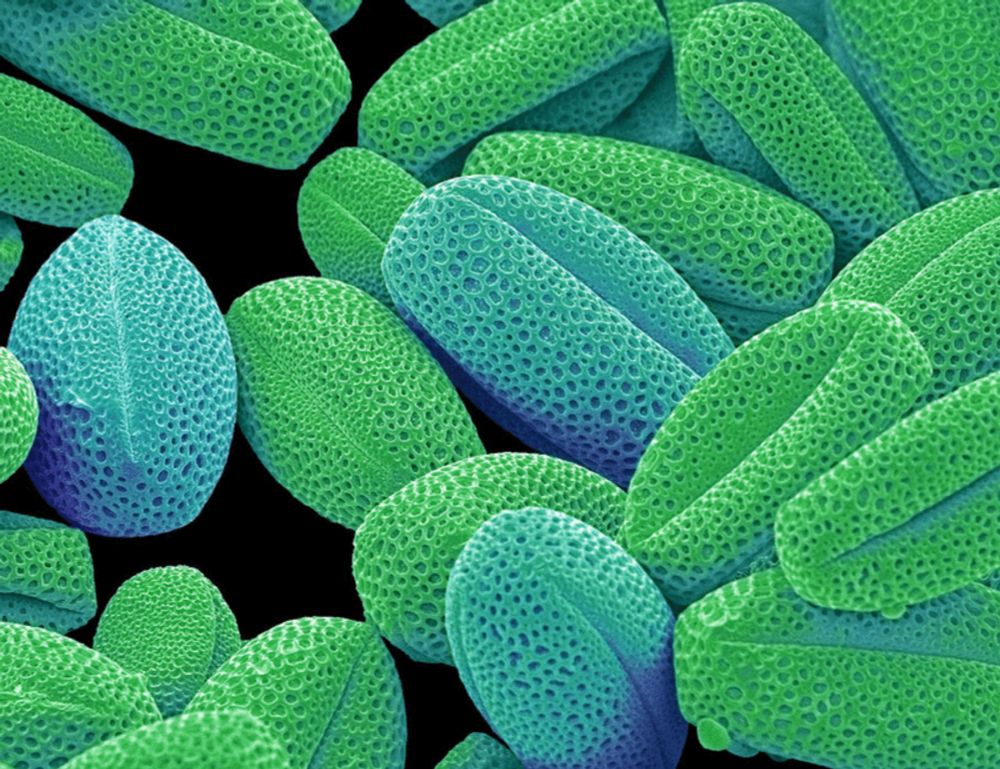(not that it compares to the evil of his theories on social darwinism but people still idolizing his naturalist work rubs me the wrong way)
03.02.2026 08:39 —
👍 2
🔁 0
💬 0
📌 0
Also he was a fraud. There is quite a lengthy literature on the fraudulent aspect of the embryos illustrating the 'ontogeny recapitulates philogeny' and, speaking as a radiolarian specialist, many of the radiolarian specimens he illustrated are at best chimeras or whatever fitted his theories.
03.02.2026 08:36 —
👍 3
🔁 0
💬 1
📌 0
Yes indeed, it s a feature they added only a couple of years ago so i would image most people don t know about it.
Similarly there was a time when there was no link to the paper on those pages.
13.01.2026 14:52 —
👍 0
🔁 0
💬 0
📌 0
That and the 'Download' and 'Request' button are identical, and at the same place.
13.01.2026 14:46 —
👍 0
🔁 0
💬 0
📌 0
If ResearchGate had a way to cancel a request, it wouldn't be an issue. The way the pages are designed, the button to request/download the paper is very prominent but the licence or the link to the paper isn't. And once you realize you just asked for a copy of an open access paper, it is too late.
13.01.2026 14:34 —
👍 0
🔁 0
💬 2
📌 0

Conceptual models of ice-sheet extent and associated depositional processes along a transect. During peak interglacials with inland ice-sheet retreat, icebergs calve from the retreating ice margin and drift onto the Amundsen Sea shelf. As these icebergs ground and melt, they release most of their detritus on the shelf. During early glacial stages, the ice masses around the Amundsen Sea embayment could regrow rapidly and coalesce into an ice sheet. The advancing grounded ice “bulldozed” the sediments, which had accumulated on the shelf during the previous interglacial, toward the shelf break. From there, the fine-grained detritus is transported down to the continental slope mainly by gravitational processes.
West Antarctic Ice Sheet glaciers underwent at least five major inland retreats during the Pliocene—a period with temperatures similar to projected future warming—suggesting the possibility of meter-scale global sea-level rise in our future. In PNAS: https://ow.ly/I6NZ50XRaap
03.01.2026 00:00 —
👍 20
🔁 8
💬 0
📌 1
The #ThwaitesGlacier region has a prior history of dramatic #glacial-deglacial switching in the #Pliocene www.pnas.org/doi/10.1073/...
23.12.2025 05:45 —
👍 6
🔁 4
💬 1
📌 1

Response to “Radiolarian evolution: Analytical challenges in estimating the diversity and origin of Nature’s stars”
doi.org/10.32942/X2V...
16.11.2025 20:00 —
👍 1
🔁 1
💬 1
📌 0

Fossils for Future: the billion-dollar case for paleontology’s digital infrastructure
DOI: doi.org/10.32942/X2D...
13.09.2025 03:30 —
👍 10
🔁 9
💬 0
📌 0

BioDeeptime has made it into Science! "Climate is changing fast—and forests are 200 years behind". A sweeping new analysis of ancient pollen and modern data reveals this dramatic lag—and its consequences."(from ScienceDaily) - article: DOI: 10.1126/science.adr6700 CONGRATULATIONS to the authors.
07.07.2025 10:10 —
👍 6
🔁 3
💬 0
📌 0
Indeed it seems to work again. I hadnt been able to reach anything since a couple of days.
30.06.2025 13:02 —
👍 0
🔁 0
💬 0
📌 0
Is it just for me or are all the IODP Proceedings currently unreachable? I'm getting Error 403 on all of them and the individual DOIs lead to Error: DOI not found.
30.06.2025 10:45 —
👍 0
🔁 0
💬 1
📌 0
Now published online in Current Biology! www.cell.com/current-biol...
07.05.2025 07:17 —
👍 38
🔁 11
💬 0
📌 2
And it is finally out! bg.copernicus.org/articles/22/...
22.04.2025 06:53 —
👍 8
🔁 1
💬 0
📌 1
sorry i meant setdiff(tree$tip.label, rownames(Ages))
26.03.2025 13:09 —
👍 1
🔁 0
💬 1
📌 0
You would need to check setdiff(names(tree$tip.label),rownames(Ages)) in order to compare properly instead of just names(tree). tree is a list object that contain the names of the tips, the shapes of the edges, and potentially many more items.
26.03.2025 13:08 —
👍 1
🔁 0
💬 1
📌 0
OK :) So yes 15% seems high indeed.
04.03.2025 11:32 —
👍 0
🔁 0
💬 1
📌 0
Are you looking for a specific taxonomic group?
04.03.2025 11:23 —
👍 0
🔁 0
💬 1
📌 0
So given most taxonomists started publishing names before 2011 and in journal with physical copies, they might not even be aware of the existence of zoobank, and/or don't see the point of entering name (i. e. doing extra work) in it if they don't have to. That would be my guess. 2/2
04.03.2025 11:06 —
👍 0
🔁 0
💬 1
📌 0
Since 2011, the code of zoological nomenclature was amended to say that new names have to be entered in zoobank, IF they are published in an online-only journal. 1/2
04.03.2025 11:06 —
👍 0
🔁 0
💬 1
📌 0
I also have an account on Mastodon. I like it personally but only the few people I followed who were tech-oriented made the jump, perhaps unsurprisingly.
26.11.2024 17:38 —
👍 2
🔁 0
💬 0
📌 0
I deleted my account two months ago.
26.11.2024 17:36 —
👍 1
🔁 0
💬 0
📌 0
[...] my former institution in Germany and most of the people working there also did not make the jump, and (most damaging for me) i am also missing all the regional news/politicians from the region i am from in Southern France. 2/2
26.11.2024 17:36 —
👍 1
🔁 0
💬 0
📌 0
While most of the twitter folks that I followed from english-speaking countries (and to some extent from South America) made it here, I am still missing the others: namely my Japanese colleagues (which were making the bulk of Micropaleontology Twitter) are not here yet, [...] 1/2
26.11.2024 17:36 —
👍 1
🔁 0
💬 1
📌 0











